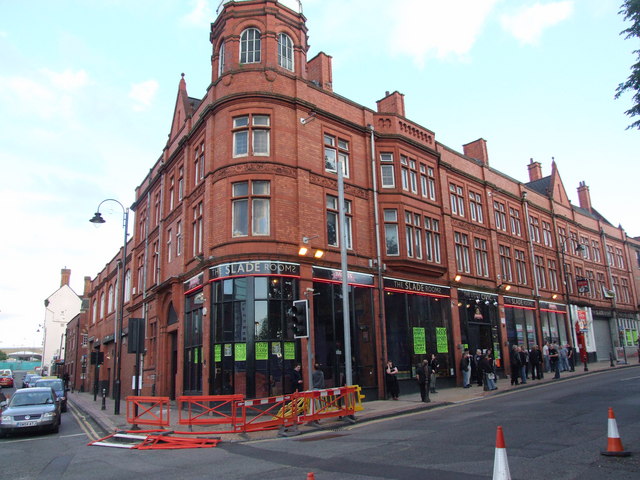One of the many casualties that Covid-19 has taken away from us is music festivals. It's summertime, the temperature is... usually reasonable, and you're living in a field for five days getting tanked with your mates - it's a British tradition for people of all ages (but mostly 16-38 year olds). For many, it's the highlight of the year; the Christmas of the summer. Alas though, 2020 wasn't having it, and we have to wait until next year at least.
However, some of the powers that be have found a way around their restrictions, by holding a very 21st century alternative to the sights, sounds and smells of a wet and muddy field: a virtual festival. Accessible to anyone with a device that can use the internet, some select festivals have shown footage from old concerts, held interviews with bands that were set to play the festival this year, and even broadcast a live performance online from certain acts.
What seems to be the case though, is that many of the festivals choosing to do this, are very firmly entrenched in a "community" style feel. Download Festival is one example - the biggest rock and metal festival in the UK, whose message and branding emboldens a spirit of one big rockin' family. Having been five times now, it's incomparable to other festivals I've attended, simply because everyone feels welcome and everyone is there to have a good time. The music also helps.
On the weekend the festival was supposed to be taking place, Download held its own online festival in the form of Download TV, where there were interviews and performances involving bands on the 2020 bill, as well as other forms of entertainment including cooking shows and eyoga. All this was available to everyone for free, with encouragement throughout to raise money for the NHS. In the end, the festival raised £10,585 for NHS Charities Together, plus £135,558 in charity t-shirt sales, which is an incredible effort! Yes, the NHS isn't a charity and shouldn't need help from a music festival to raise its funds, but this was a grand gesture from the Download team.
2000 Trees Festival, a small to medium sized event held at Upcote Farm in Gloucestershire, provided an alternative on a slightly lesser scale, by broadcasting live performances from a number of acts booked for this year, as well as interviews and unseen footage from old shows. The somewhat predictably named 2000 Screens admittedly, in the words of the festival team themselves, "could never replace 2000 Trees", but it was a pretty damn good lifeline. They didn't have to organise it, but they did for their love of music.
 |
| 2000 Trees Festival held its online festival, 2000 Screens, in July |
Most years, as June draws to a close, Glastonbury have the BBC at their mercy. You can't blame them really, it is Glastonbury after all. It was only fair that the Beeb show famous performances from old headliners and other memorable moments during Glasto's 2020 weekend. It was nice to relive past memories of me either glued to the TV at home watching Metallica, or at the Pyramid Stage watching the event close out in a storm of fireworks and flags during The Who. Alongside their mainstream television coverage, Glastonbury also aired free content online including meditation sessions, behind the scenes footage, and even debates from the infamous Left Field activist organisation.
What Glastonbury and Reading & Leeds lack though, is the community spirit. For Download and 2000 Trees, what was unique to them was the feeling that you could talk to anyone and they would become your new mates. What people will miss from Glasto instead is maybe taking an inadvertent stroll through Shangri-La and not being sure if what you're seeing is real, or if the shrooms have finally kicked in. Reading & Leeds? Maybe having someone defecate on your tent.
In respect of Download and 2000 Trees, that's what was needed most in 2020: the big happy family vibe. Everyone there is your friend. No online festival could fill that void, even if Zoom is a thing now. This was what made Download TV especially more unique. You can tell they put a lot of thought into their content and made the best of what they could, and the acts seemed more than happy to take part.
 |
| Download 2018 - the festival family |
We should be thankful for what British festivals have done for us in this cacophony of a year. In an effort to lift our moods and give us something to plug the gaps in our summer, we have been treated to some very unique experiences that, as good as they were, hopefully won't have to happen again. Keep your fingers crossed that by 2021 we will be able to return to our second homes, sitting in camping chairs, drinking warm cans and tripping over guy ropes in the night.
But will this become more common in the future? Will some events divert to an online format in a bid to save money and avoid any potential social distance rule breaking? Or will things return to the way they were soon enough, and this will be a one off? We can only wait and see.
In the meantime, here I am enjoying a Saturday watching Iron Maiden on Download TV, when I should have been in a sea of 100,000 metalheads at Donington Park instead... watching Iron Maiden.



_replica%2C_The_Beatles_Story.jpg)
